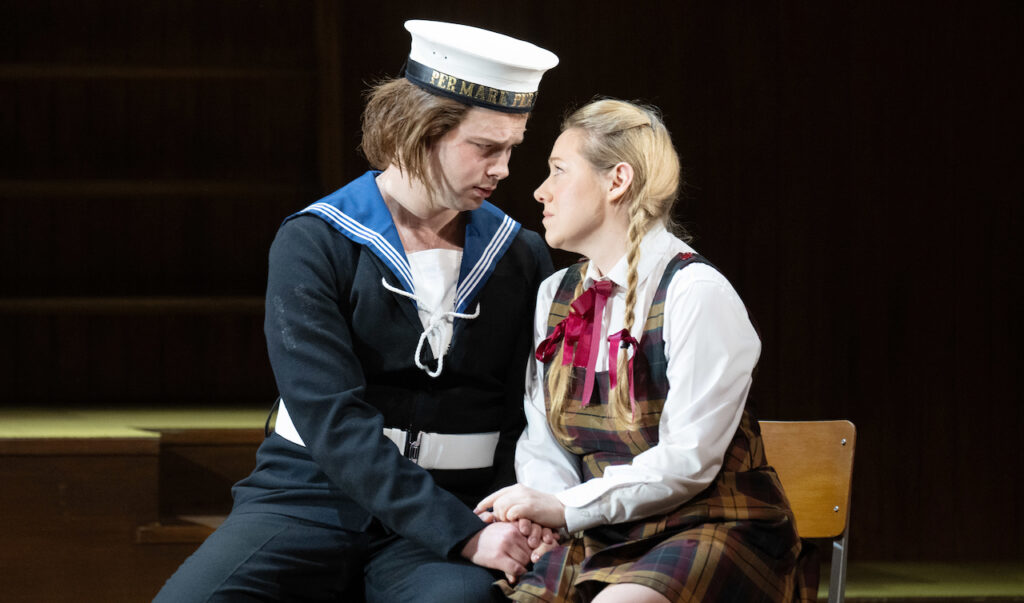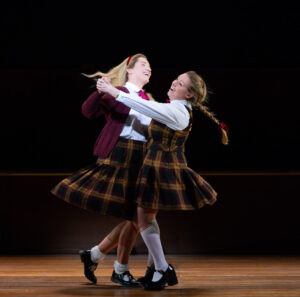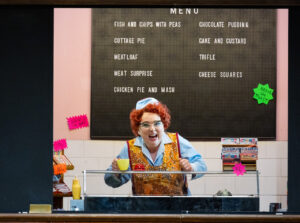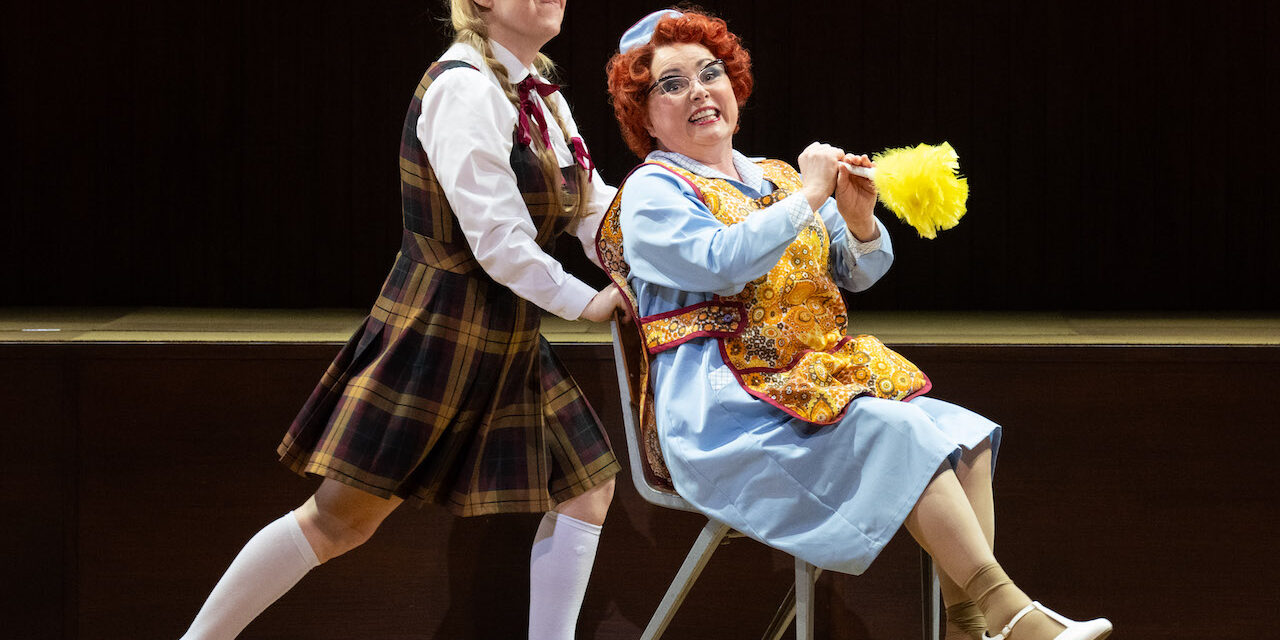
24 – 26 April
Cosi fan tutte – The School for Lovers (to give it its full title) is a strange blend of the compassionate and the creepy. While tenuously seeking justification as a clash between reason and feeling, by the end no one can claim a clear conscience. And although we are encouraged to lighten up and accept life’s ups and downs, the opera leaves us to consider whether as humans we are fundamentally fickle, or built of some greater resolve.
While Mozart’s sweet music seems to hold the keys to the human soul, librettist Lorenzo da Ponte has taken an opportunity to rummage about on the darker, frailer side of human experience, where young minds can be persuaded to mistrust their instincts, with resulting chaos and heartache following temptation and indiscretion.
Creepy too as, given the setting in this WNO production is a school, and that it is no less than the Principle, Don Alfonso, who is egging on two of his students, Guglielmo and Ferrando, to accept a bet that their respective partners are as fickle as any other woman. The title, if you didn’t already know, literally means ‘All women are like that’. It is not surprising that the opera has been labelled sexist and misogynist.
What complicates this accusation is the figure of Despina, the school-keeper/canteen lady in this staging, who, persuaded with a cash enticement from Don Alfonso, does her best to encourage the sisters Fiordiligi and Dorabella to forget about their true-loves who have been ‘called away to war’ and indulge in some fun and games with new partners. Her entreaties for women to realise pleasure for themselves is the curved ball in this otherwise very male experiment.
It has been said of Cosi that it is the most autobiographical of librettos. Da Ponte’s friendship with Casanova in the 1770’s is the biggest pointer to an author keen not only to womanise but also write about it, perhaps even using this opportunity to philosophise on his own morality and understand the turmoil in his own life.
Mozart’s innate ability to give enormous emotional resonance to the written word carries any performance of Cosi to heights it probably shouldn’t attain. Tonight’s sparkling cast injected every ounce of wit, shock, despair, anger and devilishness that the story demands into their performances. Despite the emotional wrangles on display, there remained a lightness to this production, but never at the expense of emotional expression.
Sophie Bevan and Kayleigh Decker as the duped sisters, Fiordiligi and Dorabella, sang as sweetly as two blackbirds on a rooftop, magnificently exploring the range and expression in every line of Mozart’s delicious composition.

Bevan’s heartrending plea as Fiordiligi to ‘banish the memory that shames and horrifies me’ and her ‘love is cruel and takes our peace as ‘he’ pleases’, carried tangible pain. Rebecca Evans’s Despina almost stole the show with a highly comedic interpretation that elicited a hearty cheer at the final curtain.

James Atkinson’s bass as Guglielmo and Egor Zhuravskii’s Ferrando tenor blended well throughout, while José Fardilha as the provocative Don Alfonso provided pleasingly warm bass tones behind the soaring sopranos – the aria Soave sia il vento (May the wind be gentle), a musical mini masterpiece, being a standout.
Conducted with a flowing quality by WNO Music Director Tomáš Hanus, the WNO orchestra, in particular the woodwind section, always seamlessly blended with the vocals. Jemima Robinson’s reasonably stark set of a school assembly hall wall and stage with a sliding blackboard device revealing a tuck shop was always enough, with Mark Jonathan’s controlled lighting design, to provide the story with focus. The decision to put Guglielmo and Ferrando in short trousers before their fake call to arms was questionable! But a small blip on an otherwise memorable production.
★★★★☆ Simon Bishop, 25 April, 2024


